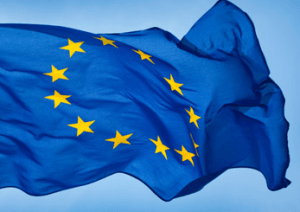EU recommends law on 30% quota of women in governance
 The European Union (EU) Election Observer Mission in Ghana has recommended the enactment of an Affirmative Action Bill to promote at least a 30 per cent quota of women in governance and decision-making process.
The European Union (EU) Election Observer Mission in Ghana has recommended the enactment of an Affirmative Action Bill to promote at least a 30 per cent quota of women in governance and decision-making process.
The Mission was of the view that the nomination deposits for parliamentary candidates be reduced with special dispensation for female candidates to help promote women’s participation in political life.
“This is critical because women play an active role in many aspects of the country’s democratic role, yet their level of representation as candidates and elected members remains relatively low,” the Mission added.
Dr Tamas Meszerics, the Head of the EU Election Observer Mission made the recommendation in Accra at the final report of the Mission’s Presidential and Parliamentary Elections for 2016.
The 40 page report described the overall conduct of the 2016 elections as transparent, incident-free and free and fair and expressed the hope that there was more room for improvement in future elections.
The report posits that an effective sanctioning mechanism against the misuse of state resources, including administrative and security apparatus during election period be established.
“The Electoral Commission should work with full transparency, making all information of public interest immediately and easily accessible, including decisions, meeting minutes, key legislation, voter registration data and timely publication of polling station results,” it added.
The report also recommended the Ghana Broadcasting Corporation should be reformed to ensure it fulfils its obligations as a public service broadcaster, saying a transparent mechanism should be set up to ensure the independence and public-accountability of state-owned media.
The report observed that the Mission’s media monitoring found overt bias in election coverage by the state-owned Ghana Television and Unique FM in favour of the ruling Party and incumbent President.
The report urged the EC to apt its capacity to enforce the provisions of the law on political campaign finance to ensure utmost transparency and accountability, adding that if possible, responsibility could be given to another body.
The report also recommended among others the passing of the Right to Information Bill to give substance to Article 21 of the Constitution and transparency to many aspects of the elections, establishment of an inclusive Parliamentary mechanism for cross party involvement in the selection of EC members.
Dr Meszerics commended the country for peacefully conducting elections and urged the country to find ways of appointing future Electoral Commissioners instead of the Constitutional mandate, where the President exercises the prerogative.
He said the EC was well prepared for the polls, despite facing a number of legal challenges and that there were reasonable provision for the right to vote and the voter register was inclusive enough to ensure universal suffrage.
Dr Meszerics observed that there was freedom of association, vibrant and peaceful campaign, but the provisions and timelines for nomination of Presidential candidates lacked coherence and the administrative management.
The report discussed among other things, the political background of the country, election administration, voter registration, election campaign, media and elections, participation of women, election disputes, and results and post-election environment.
Source: GNA
